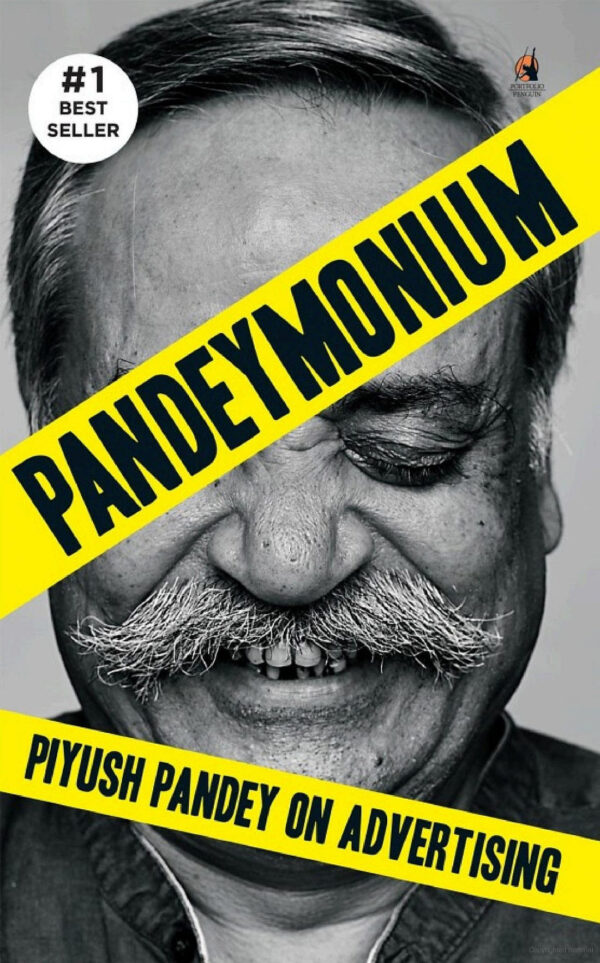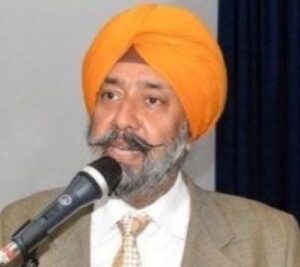 On October 24, 2025, the advertising world lost its brightest and most beloved star: Piyush Pandey. From the bylanes of Jaipur to the halls of St Stephen’s College, Delhi, his journey shaped modern Indian creativity and redefined the public’s relationship with brands—and democracy—itself.
On October 24, 2025, the advertising world lost its brightest and most beloved star: Piyush Pandey. From the bylanes of Jaipur to the halls of St Stephen’s College, Delhi, his journey shaped modern Indian creativity and redefined the public’s relationship with brands—and democracy—itself.
Roots in Rajasthan: Family, School, and College
Born in Jaipur in 1955, the eighth of nine siblings, Piyush grew up in a home alive with music, laughter, and lively competition. His mother Bhagwati Pandey ensured discipline, while his father worked for rural development at the Rajasthan State Co-operative Bank. His siblings—Prasoon Pandey and Ila Arun—would later become creative legends in their own right.
A mischievous boy with a sharp wit, Piyush excelled at cricket, representing Rajasthan in the Ranji Trophy. At St Stephen’s College, Delhi, he read History, cultivating a deep curiosity about culture, people, and storytelling—the foundation of his creative genius.
Early Jobs and the Call to Advertising
Before advertising called him, Piyush’s path wound through unexpected detours: tea-taster in Kolkata, cricketer, even construction worker. He joined Ogilvy & Mather in 1982, moving from account management to creative in 1988—a pivot that would transform Indian advertising forever.
The Dream Merchant: Ogilvy, Iconic Campaigns, and National Culture
Rising through the ranks at Ogilvy—eventually becoming National Creative Director and later Chief Creative Officer—Piyush turned brand communication into art. His touch was unmistakable: humour grounded in Indian idiom, emotion without sentimentality, and authenticity that spoke to every household.
His first major breakthrough came in 1986 with a print campaign for Sunlight detergent, featuring vibrant imagery and colloquial copy that celebrated the everyday brightness of Indian life. The campaign was simple yet powerful—it connected detergent not with product claims, but with the joy of freshly washed clothes drying in the sun, reflecting his instinct for emotion over jargon. This early success marked his arrival as a creative force and set the tone for the decades that followed.
Landmark Campaigns:
Fevicol – “Fevicol ka Jod”: Humour and durability with unmatched recall
Cadbury Dairy Milk – “Kuch Khaas Hai”: Uninhibited joy through chocolate
Asian Paints – “Har Khushi Mein Rang Laaye”
Vodafone – ZooZoos & Pug Series (“You & I”)
“Mile Sur Mera Tumhara” – the anthem of unity in diversity
Polio Campaign with Amitabh Bachchan
Google Reunion, Fortune Oil, and many more
These were not mere advertisements—they became cultural memory. His work spoke in the language of India’s streets, homes, and hearts.

The Landmark: BJP’s 2014 “Ab ki Baar, Modi Sarkar” Campaign
The watershed of Piyush Pandey’s political work came in 2014. Personally approached by Narendra Modi, with whom he had earlier collaborated on Gujarat tourism films, he crafted a line that became a movement:
“Ab ki baar, Modi sarkar.”
He initially hesitated, wary of overt politics, but ultimately recognised the creative challenge and national moment. Partnering with Soho Square (Ogilvy), he and his team produced a slogan that distilled aspiration, fatigue, and hope into four unforgettable words.
Pandey viewed advertising as “air cover for ground campaigners,” never a substitute for real engagement. Yet the phrase swept across languages and regions, embedding itself in everyday conversation. Its cadence, rhythm, and relatability defined an election and altered the lexicon of political communication.
The echo travelled far: the Trump campaign in 2016 would adapt the line—proof of its global resonance.
Mentor, Storyteller, and Witty Friend
Among colleagues and proteges, Piyush was known as “yaaron ka yaar.” He gave freely of his time, told stories that became parables, and laughed with a warmth that disarmed all hierarchy. His generosity of spirit inspired an entire generation of copywriters, filmmakers, and brand custodians who saw in him both mentor and friend.
Awards, Honours, and Global Recognition
Padma Shri (2016) – for contributions to advertising and communication
Lion of St Mark, Cannes Lions (2018) – lifetime achievement in creativity
CLIO Lifetime Achievement Award (2012)
LIA Legend Award (2024)
First Asian Jury President, Cannes Lions (2004)
These accolades mirrored what India already knew—that Piyush Pandey was not just an adman, but an institution.
Lasting Impact and Tributes
Finance Minister Nirmala Sitharaman:
“Saddened to hear of the passing of Shri Piyush Pandey. A titan and legend of Indian advertising, he transformed communication by bringing everyday idioms, earthy humour, and genuine warmth into it. Heartfelt condolences to his family, friends, and the entire creative fraternity.”
Anand Mahindra:
“What I will remember most is not the campaigns he crafted or the brands he built, but his hearty laugh and his irrepressible zest for life. Piyush always carried an invincible summer within him.”
Ogilvy Global Statement:
“To our entire Ogilvy family, it is with an unfathomable sense of loss that we share the passing of our beloved Piyush Pandey. His ideas were industry benchmarks that inspired generations of storytellers. He leaves behind his family, his colleagues who became family, and a body of work that continues to define the soul of Indian advertising.”
His Roar Endures
The lion from Jaipur, the humble Stephenian, the voice of India’s middle class, the architect of a slogan that won an election and changed history—Piyush Pandey’s legacy roars on in every campaign that dares to speak with heart, humour, and honesty.
May his soul rest in peace.
Sadgati to the lion of Indian advertising.
“Better a witty fool, than a foolish wit.”
— William Shakespeare, Twelfth Night
Share The KBS Chronicle
Author’s Note / Closing Credit
Piyush Pandey (1955–2025): Jaipur boy, St. Stephen’s alumnus, humble visionary, architect of India’s voice in advertising, beloved friend, and a legend whose roar will never fade.